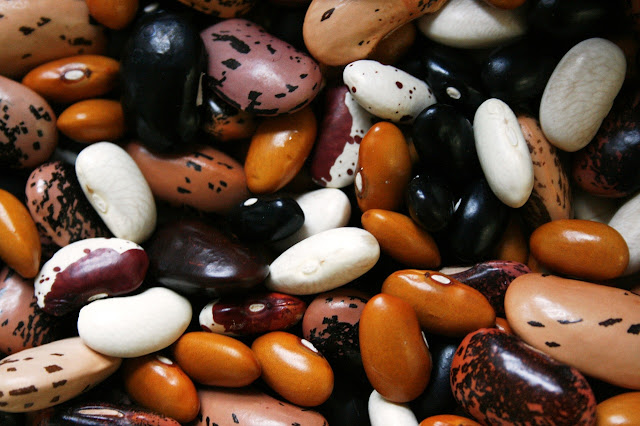Magnesium matters!
This essential mineral powers over 300 reactions in your body, keeping your muscles and nerves humming, blood sugar balanced, and bones strong. Unfortunately, many people fall short on magnesium, leading to potential problems like fatigue, cramps, and high blood pressure.
1. Leafy Green Powerhouses:
Popeye knew his stuff! Kale, spinach, collard greens, and turnip greens are magnesium champions, with one cup of cooked spinach packing nearly 40% of your daily needs. They're also brimming with vitamin K, iron, and folate.
2. Nutty Goodness:
3. Dark Chocolate Indulgence:
Craving something sweet? Choose dark chocolate (70% cacao or higher) for a magnesium boost. A 100-gram bar offers 60mg, along with heart-healthy antioxidants and flavanols. Remember, moderation is key!
4. Legume Love:
Black beans, chickpeas, lentils, and soybeans are protein and fiber powerhouses loaded with magnesium. Half a cup of cooked black beans provides 120mg, while chickpeas offer 70mg. These versatile gems can be added to countless dishes.
5. Go Whole Grain:
Ditch refined grains and choose whole grains like quinoa, brown rice, and whole-wheat bread. One cup of cooked quinoa delivers 60mg, while a slice of whole-wheat bread gives you 50mg. Whole grains also pack fiber, B vitamins, and other nutrients.
6. Creamy Avocado:
This delicious fruit isn't just trendy, it's a magnesium goldmine. One avocado offers 50mg, along with healthy fats, fiber, and potassium. Spread it on toast, add it to salads, or blend it into smoothies.
7. Banana Bliss:
This classic fruit, beyond its potassium fame, offers about 8mg of magnesium per banana. Perfect for pre-workout fuel or a healthy dessert.
8. Yogurt Power:
Plain yogurt, especially Greek yogurt, is a protein and magnesium source. One cup of Greek yogurt packs 30mg. Top it with berries, nuts, or granola for a satisfying snack.
9. Sweet Potato Delight:
These versatile veggies are not only delicious but also offer around 30mg of magnesium per medium potato. They're rich in beta-carotene and vitamin C, making them a colorful and nutritious side dish.
10. Dark Leafy Delights:
Collard greens, Swiss chard, and romaine lettuce are magnesium stars, offering 20-30mg per cup. They're also packed with vitamins A, C, and K, making them nutritional powerhouses.
Remember: Variety is key to ensuring you get enough magnesium. By incorporating these magnesium-rich foods into your diet, you'll support your overall health and well-being.
A note on kidney disease:
While magnesium offers potential benefits for people with kidney disease, it's essential to proceed with caution. Talk to your doctor before increasing your magnesium intake, especially if you have advanced CKD or are on dialysis. They can help you navigate the complex relationship between magnesium and kidney function to ensure your safety and maximize potential benefits.
Considering a supplement?
USANA's Magnical D is a dietary supplement formulated with a balanced ratio of magnesium, calcium, and vitamin D. This combination supports bone health, muscle function, and overall well-being. However, remember that supplements should not replace a balanced diet rich in magnesium-containing foods. Always consult your healthcare professional before taking any supplements, including Magnical D, to ensure they are right for you and your specific needs.Share this information with your friends and family and spread the word about the importance of magnesium!
In conclusion, prioritizing magnesium-rich foods in your diet is a simple yet impactful way to enhance your overall well-being. From leafy greens to nuts and dark chocolate, the options are both delicious and nutritious. Remember, maintaining a balanced diet with these foods can help you keep magnesium-related health issues at bay.
FAQs:
Can I get too much magnesium from food?
While it's rare to overdose on magnesium through food, it's essential to be cautious with supplements. Excessive magnesium intake can lead to diarrhea and other complications.
Are there other symptoms of magnesium deficiency besides fatigue?
Are there other symptoms of magnesium deficiency besides fatigue?
Yes, symptoms may include muscle cramps, nausea, and abnormal heart rhythms. If you suspect a deficiency, consult with a healthcare professional.
Is it necessary to consult a doctor before taking magnesium supplements?
Is it necessary to consult a doctor before taking magnesium supplements?
Yes, especially if you have underlying health conditions or are on medication. Your doctor can provide personalized advice based on your health status.
Can I rely solely on supplements for my magnesium intake?
Can I rely solely on supplements for my magnesium intake?
No, it's crucial to maintain a balanced diet rich in magnesium-containing foods. Supplements should complement, not replace, a healthy diet.
Is magnesium intake equally important for all age groups?
Is magnesium intake equally important for all age groups?
Yes, magnesium is essential for people of all ages. However, individual needs may vary, and consulting a healthcare professional is advisable.













0 comments:
Post a Comment